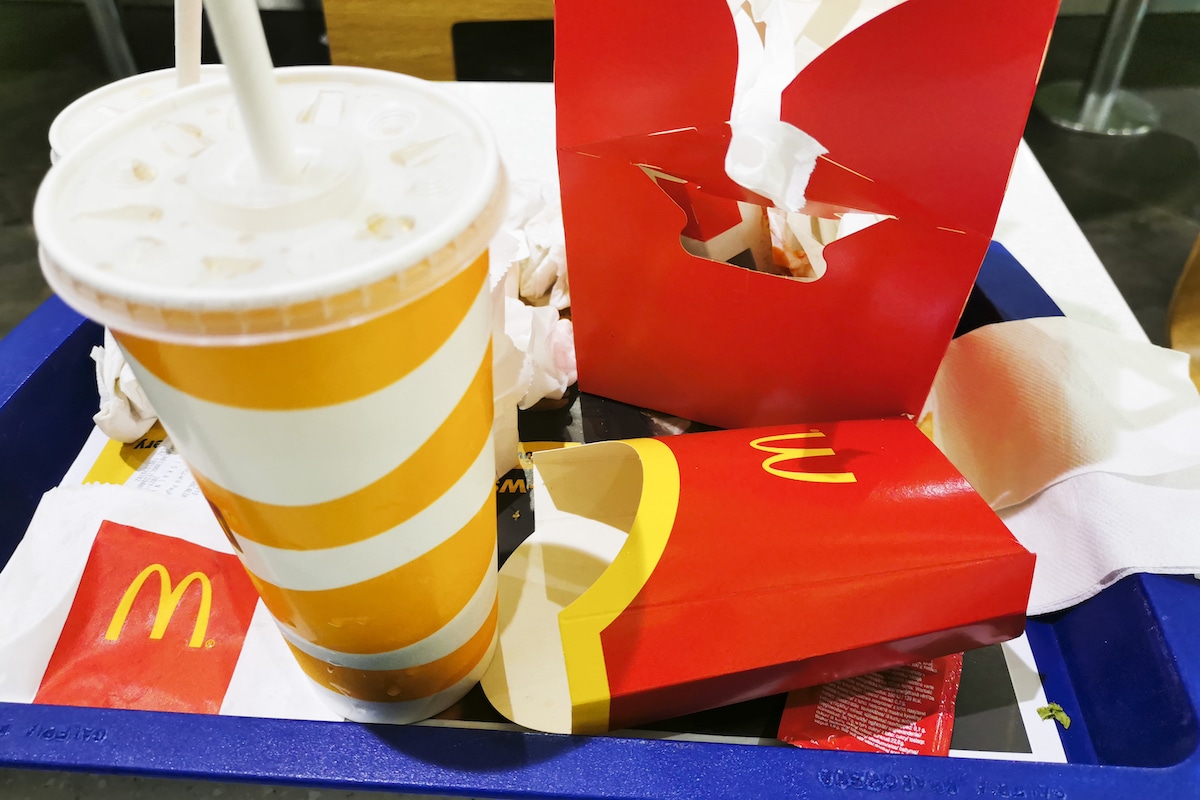McDonald’s Lobbies Against New Packaging Waste Reduction Laws in UK

 Why you can trust us
Why you can trust us
Founded in 2005 as an Ohio-based environmental newspaper, EcoWatch is a digital platform dedicated to publishing quality, science-based content on environmental issues, causes, and solutions.
Following recent laws proposed by the European Commision in November 2022, fast food company McDonald’s is lobbying strongly against the legislation, which targets reductions in packaging waste.
In an open letter published in April, McDonald’s — along with other companies and trade associations, including Baskin-Robbins, Dunkin’ and Yum! — addressed the EU, asking for a halt to the proposed packaging and packaging waste regulation.
Over the past year, McDonald’s has helped fund three studies to argue against the packaging waste reduction targets, although the company has stated that it does support the European Green Deal. The studies have been criticized for a lack of transparency from not sharing data or methodology that resulted in the studies’ conclusions.
“The publication uses unclear data and assumptions to undermine the role of reusable packaging,” Marco Musso, a policy officer at the European Environmental Bureau, told DeSmog. “It’s a bit disturbing that it’s then presented as unquestionable science.”
The company and other industry groups have said that turning to reusable packaging will require more water and energy to wash and dry the food packaging. McDonald’s also said packaging is essential for quick and efficient service to customers on its No Silver Bullet website, one of two sites the company has set up to lobby against the packaging waste laws. In addition to the studies and websites, McDonald’s has paid for multiple sponsored articles to share its position.
According to Jean-Pierre Schweitzer, the deputy policy manager for circular economy at the European Environmental Bureau, the proposed legislation is one of the most lobbied on file that the EU Parliament has seen, as reported by DeSmog.
While McDonald’s and other opponents said in the open letter that moving to entirely reusable packaging by 2030 would increase greenhouse gas emissions for dine-in restaurants by about 50% or up to 177%, and up to 260% for takeaway restaurants, other studies have found the opposite to be true.
The European Commission noted that the proposal could decrease greenhouse gas emissions from 66 million metric tons to 43 million metric tons by 2030. A recent study based in the U.S. found that reusable containers can reduce energy demand, global warming potential, water consumption, waste and even costs.
The packaging waste legislation targets a single-use packaging ban for restaurants and cafes by 2030 and sets a goal for a 10% switch to reusables for takeout food and a 20% switch for to-go beverages. Without changes, the European Commission predicted that packaging waste will increase from 180 kg per person in Europe to 215 kg per person by 2030.
Subscribe to get exclusive updates in our daily newsletter!
By signing up, you agree to the Terms of Use and Privacy Policy & to receive electronic communications from EcoWatch Media Group, which may include marketing promotions, advertisements and sponsored content.

 233k
233k  41k
41k  Subscribe
Subscribe 




